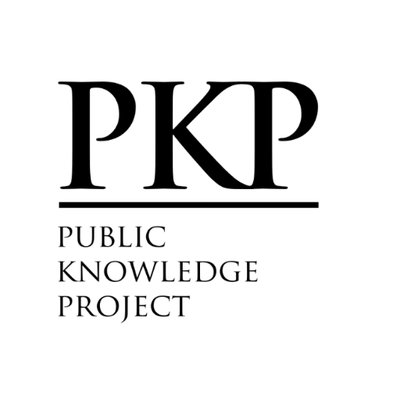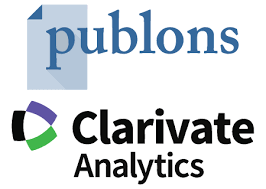COVID-19 and its impacts on financial inclusion in developing countries
case of Turkey
DOI:
https://doi.org/10.59051/joaf.v15i3.778Keywords:
secteur bancaire, , Borsa Istanbul, EGARCH, volatilité, effet de levier, COVID-19Abstract
Purpose: The primary objective of this study is to examine the impact of the COVID-19 crisis on the Turkish banking sector. Leveraging empirical data, we aim to assess how the pandemic influenced the performance of the Borsa Istanbul Banking Sector Index (BIST) from January 2020 to December 2021. This analysis seeks to provide valuable insights to guide decisions in economic policymaking and investment strategies, shedding light on the specific dynamics that shaped the Turkish financial landscape during this tumultuous period.
Method: Our research methodology entails the concurrent use of the Borsa Istanbul Banking Sector Index (BIST) and daily COVID-19 case data. To analyze the pandemic's effects on the banking sector, we employed the Heteroskedasticity-Conditional Autoregressive Generalized Exponential (EGARCH) method. This sophisticated statistical approach allows for precise and rigorous evaluation of volatility changes and market reactions within the Turkish financial market amid shocks induced by the global health crisis.
Results: Our study findings reveal a moderate positive effect of COVID-19 on the returns of the BIST Banking Sector Index. This observation suggests that despite the challenges posed by the pandemic, the Turkish banking sector exhibited relative resilience, potentially attributable to economic support measures implemented to mitigate adverse impacts. Furthermore, our analysis indicates a lack of significant volatility spillovers, underscoring the relative stability of the Turkish banking sector during the study period. Additionally, we observed no notable leverage effect, implying that both positive and negative news had similar impacts on the Turkish banking sector during the COVID-19 crisis.
Originality: This study makes a significant contribution to understanding the effects of the COVID-19 crisis on the Turkish banking sector by employing an innovative methodological approach and utilizing recent empirical data. By illuminating the specific dynamics of the Turkish financial market during this unprecedented period, our research offers valuable insights for policymakers, investors, and financial sector stakeholders, enabling them to make informed decisions in an uncertain economic environment.
Downloads
References
Ajmi, H., Mansour, W., & Saci, K. (2022). Regulatory policies in the global Islamic banking sector in the outbreak of COVID-19 pandemic. Journal of Banking Regulation, 23(3), 265–287. https://doi.org/10.1057/s41261-021-00147-3
Al-Awadhi, A. M., Alsaifi, K., Al-Awadhi, A., & Alhammadi, S. (2020). Death and contagious infectious diseases: Impact of the COVID-19 virus on stock market returns. Journal of Behavioral and Experimental Finance, 27, 100326. https://doi.org/10.1016/j.jbef.2020.100326
Alamdar, S., & Shah, A. (2017). Input Efficiency of Financial Services Sector: A Non-Parametric Analysis of Banking and Insurance Sectors of Pakistan. European Journal of Islamic Finance, 0(6), 1–12.
Baicu, C. G., Gârdan, I. P., Gârdan, D. A., & Epuran, G. (2020). The impact of COVID-19 on consumer behavior in retail banking. Evidence from Romania. Management & Marketing. Challenges for the Knowledge Society, 15(s1), 534–556. https://doi.org/10.2478/mmcks-2020-0031
Barro, R. J., Ursúa, J. F., & Weng, J. (2020). the Coronavirus and the Great Influenza Pandemic : NBER Working Paper Series, March, 1–27. https://www.nber.org/system/files/working_papers/w26866/w26866.pdf
Batten, J. A., Choudhury, T., Kinateder, H., & Wagner, N. F. (2022). Volatility impacts on the European banking sector: GFC and COVID-19. Annals of Operations Research. https://doi.org/10.1007/s10479-022-04523-8
BDDK. (2020). Bankacılık Düzenleme ve Denetleme Kurumu. https://www.bddk.org.tr
Çalış, N., & Sakarya, Ş. (2022). Covid-19 Pandemisinin Mevduat Bankalarının Likidite ve Karlılık Yapısına Etkisi: BİST Bankacılık Endeksi Üzerine Bir İnceleme. Muhasebe Bilim Dünyası Dergisi. https://doi.org/10.31460/mbdd.1060604
Cesur, A., Aydin, M., Atuklap, E., Avşarılgil, N., Şenol, Z., & Aydin, M. (2020). Para ve Finans (Urhan TOĞUÇ (ed.)). İKSAD Publising house. https://www.researchgate.net/profile/Zekai-Senol/publication/342397106_COVID-19_Krizi_ve_Finansal_Piyasalar/links/5ef260d4458515ceb2047015/COVID-19-Krizi-ve-Finansal-Piyasalar.pdf
Christensen, J. H. E., & Spiegel, M. M. (2023). Central bank credibility during COVID-19: Evidence from Japan. Journal of International Money and Finance, 131, 102788. https://doi.org/10.1016/j.jimonfin.2022.102788
Çinar, M., & Yalçin, B. (2022). The Impact of the Covid-19 Pandemic on the Automotive Industry : Panel Data Approach. Bursa Uludağ Journal of Economy and Society, 41, 53–65. https://uludag.edu.tr/dosyalar/iibfdergi/genel-dokuman/2022_1/asl04.pdf
Ersoy, H., Gürbüz, A. O., & Erdoğan, M. F. (2020). Covid-19’un Türk Bankacılık ve Finans Sektörü Üzerine Etkileri, Alınabilecek Önlemler. İstanbul Ticaret Üniversitesi Sosyal Bilimler Dergisi, Covid19-Öz(37), 146–173.
Güven, D., & Karadaş, H. A. (2022). KÜRESEL EKONOMİK KRİZLERİN KATILIM BANKALARININ PERFORMANSI ÜZERİNDEKİ ETKİLERİ: COVID-19 SALGINI ÖRNEĞİ. Erciyes Üniversitesi İktisadi ve İdari Bilimler Fakültesi Dergisi. https://doi.org/10.18070/erciyesiibd.1032746
İbrahim, bicil. (2021). COVID-19 PANDEMİ SÜRECİNDE TÜRK BANKACILIK SİSTEMİNDEKİ MEVDUAT BANKALARININ TOPLAM FAKTÖR VERİMLİLİĞİNDEKİ DEĞİŞİMLER. Yönetim ve Ekonomi Araştırmaları Dergisi. https://doi.org/10.11611/yead.1011746
İMRE, S. (2021). COVİD-19 PANDEMİSİNİN SEÇİLİ BİST SEKTÖR ENDEKSLERİ ÜZERİNDEKİ ETKİSİ. Yönetim ve Ekonomi Araştırmaları Dergisi. https://doi.org/10.11611/yead.984604
Jreisat, A., Rabbani, M. R., Hatamleh, Z. M., & Grewal, H. (2021). COVID-19: A Closer Look at the MENABanking Sector. 2021 International Conference on Decision Aid Sciences and Application (DASA), 344–349. https://doi.org/10.1109/DASA53625.2021.9682244
Kalpakam, G., & Krina, T. (2021). Systemic Risk in Indian Banking: Measurement and Impact of COVID-19. Annals of Dunarea de Jos University of Galati. Fascicle I. Economics and Applied Informatics, 27(1), 143–151. https://doi.org/10.35219/eai15840409177
KOCAMAN, B. (2021). COVID-19 SÜRECİNDE TÜRK BANKACILIK SEKTÖRÜ VE PİYASA YOĞUNLAŞMASININ ANALİZİ. Hitit Sosyal Bilimler Dergisi. https://doi.org/10.17218/hititsbd.1007890
MARCU, R. M. (2021). The Impact of the COVID-19 Pandemic on the Banking Sector. Management Dynamics in the Knowledge Economy, 9(2), 205–223. https://doi.org/10.2478/mdke-2021-0013
Mehmood, A., & De Luca, F. (2023). How does non-interest income affect bank credit risk? Evidence before and during the COVID-19 pandemic. Finance Research Letters, 103657. https://doi.org/10.1016/j.frl.2023.103657
Nicola, B., & Giorgio, G. di. (2022). Systemic risk and the COVID challenge in the european banking sector. Journal of Banking & Finance, 140, 106073. https://doi.org/10.1016/j.jbankfin.2021.106073
Pedraza, A., Demirgüç-Kunt, A., & Ruiz-Ortega, C. (2021). Banking sector performance during the COVID-19 crisis. Journal of Banking & Finance, 133, 106305. https://doi.org/10.1016/j.jbankfin.2021.106305
Rao, K. M. (2021). Assessing volatility in the banking stocks in Indian stock market during the Covid-19 pandemic: Using arch/garch models. Asian Journal of Research in Banking and Finance, 11(9), 29–40. https://doi.org/10.5958/2249-7323.2021.00017.1
Rootman, C. (2021). South African bank loyalty during Covid-19 times. The Retail and Marketing Review, 2(3), 17.
Şenol, Z., & Başer, R. (2022). COVID-19’un Bankacılık Sektörüne Etkileri: Türkiye Örneği. Yalova Sosyal Bilimler Dergisi, 12(2), 28–37.
Seungho, B., & Kwan, Y. L. (2021). The risk transmission of COVID-19 in the US stock market. Applied Economics, 53(17), 1976–1990. https://doi.org/10.1080/00036846.2020.1854668
Sinem, A., & Selim, Ş. (2021). COVID-19 KÜRESEL SALGINININ HİSSE SENEDİ PİYASASI OYNAKLIĞI ÜZERİNDEKİ ETKİSİ: BIST100 UYGULAMASI. Ömer Halisdemir Üniversitesi İktisadi ve İdari Bilimler Fakültesi Dergisi. https://doi.org/10.25287/ohuiibf.827464
Süreyya, İ. biyikli. (2022). COVID-19 PANDEMİSİNİN SEÇİLİ DÜNYA BORSALARI ÜZERİNDEKİ ETKİSİ. Finansal Araştırmalar ve Çalışmalar Dergisi. https://doi.org/10.14784/marufacd.1148493
TCMB. (2020). Türkiye Cumhuriyet Merkez Bankası. https://www.tcmb.gov.tr
Yang, Y., Peng, F., Wang, R., Guan, K., Jiang, T., Xu, G., Sun, J., & Chang, C. (2020). The deadly coronaviruses: The 2003 SARS pandemic and the 2020 novel coronavirus epidemic in China. Journal of Autoimmunity, 109, 102434. https://doi.org/10.1016/j.jaut.2020.102434
Zekai, Ş., & Gülşah, O. (2021). COVID-19’UN BİST SEKTÖRLERİNE ETKİSİ. Finans Ekonomi ve Sosyal Araştırmalar Dergisi. https://doi.org/10.29106/fesa.984219
Downloads
Published
How to Cite
Issue
Section
License
Copyright (c) 2024 Moustapha Abakar Moussa, Recep Yılmaz

This work is licensed under a Creative Commons Attribution-NonCommercial-NoDerivatives 4.0 International License.
Authors who publish with this journal agree to the following terms:
- Authors retain copyright and grant the journal right of first publication with the work simultaneously licensed under a Creative Commons Attribution License that allows others to share the work with an acknowledgement of the work's authorship and initial publication in this journal.
- Authors are able to enter into separate, additional contractual arrangements for the non-exclusive distribution of the journal's published version of the work (e.g., post it to an institutional repository or publish it in a book), with an acknowledgement of its initial publication in this journal.
- Authors are permitted and encouraged to post their work online (e.g., in institutional repositories or on their website) prior to and during the submission process, as it can lead to productive exchanges, as well as earlier and greater citation of published work (See The Effect of Open Access).























